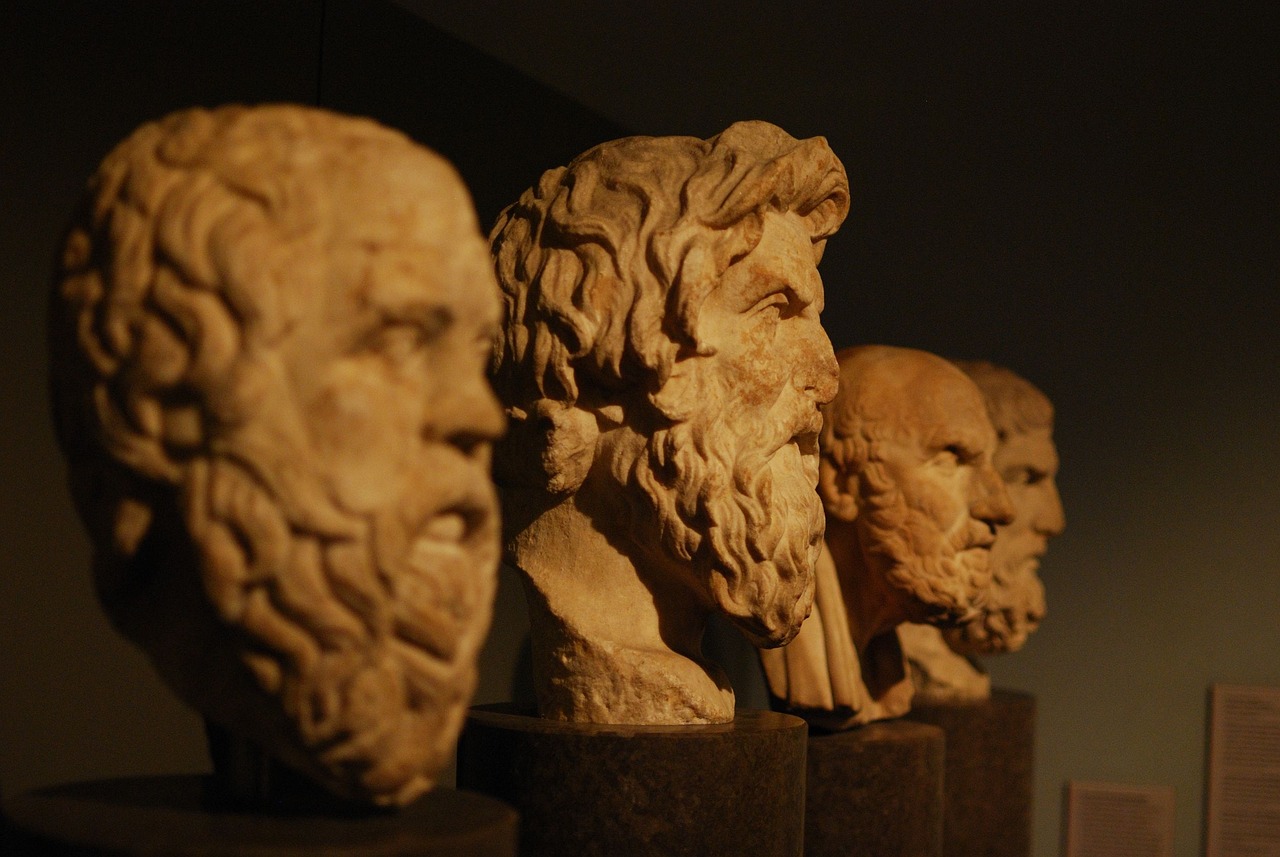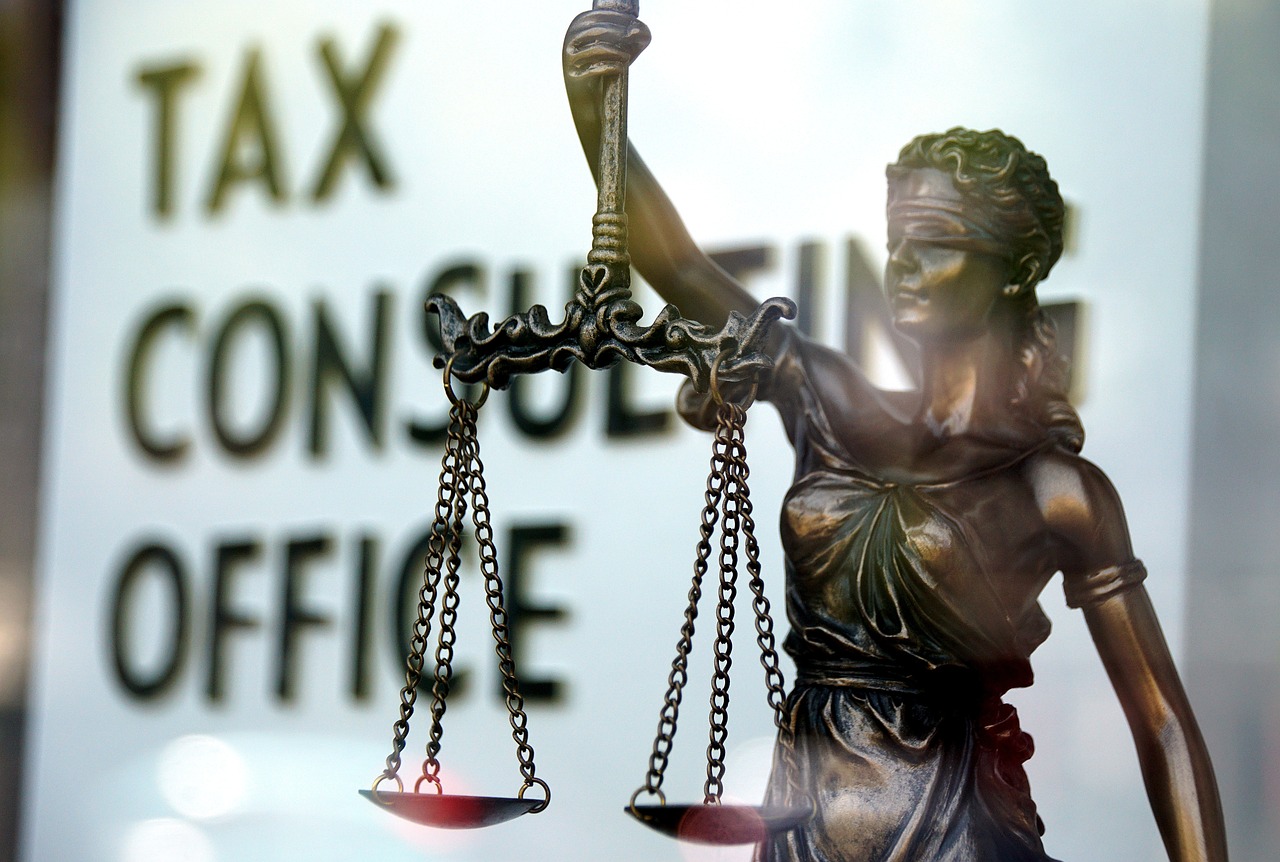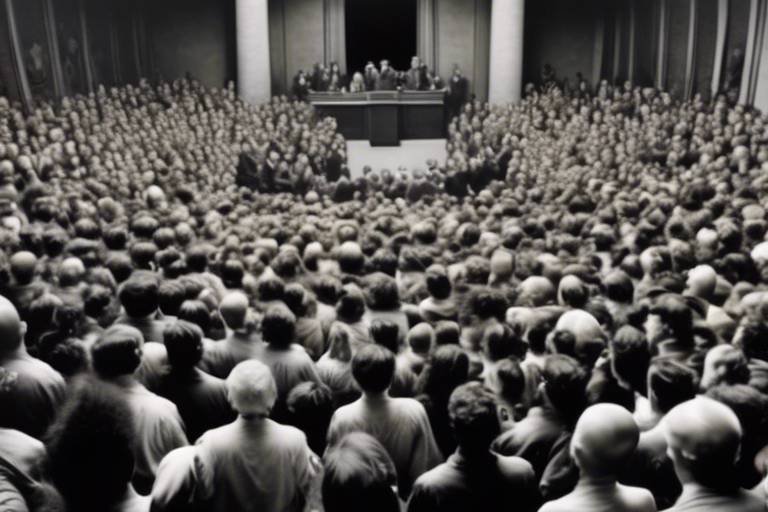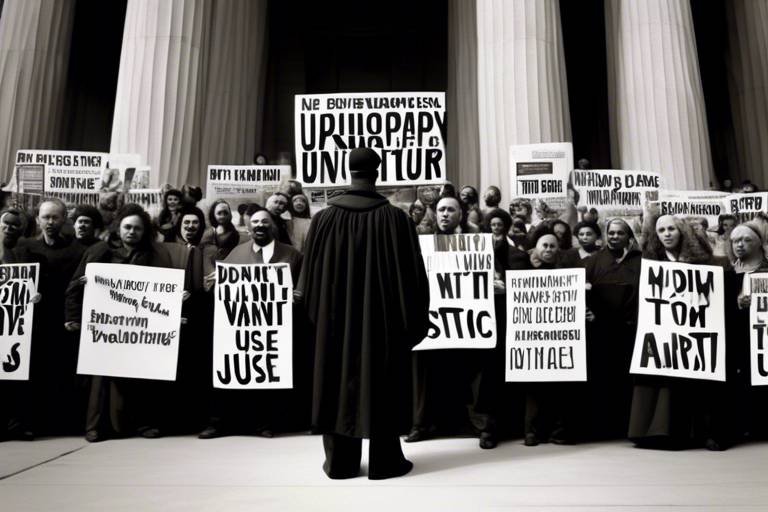Philosophy and Politics – Their Influence on Society
Philosophy and politics are like two sides of the same coin, each influencing the other in profound ways. When we think about how societies function, we often overlook the deep-rooted philosophical ideas that underpin political systems. These ideas shape our understanding of governance, justice, and individual rights. Imagine a world where every political decision is guided by ethical considerations—this is the power of philosophy in politics. It’s not just about laws and regulations; it’s about the values and beliefs that drive those laws. In this article, we will explore how philosophical concepts have influenced political ideologies throughout history and how they continue to shape our society today.
At its core, political philosophy examines fundamental questions about power, authority, and the moral implications of political actions. It asks us to consider: What is justice? Who should hold power? How do we balance individual rights with the common good? These questions are not merely academic; they have real-world implications that affect how societies are structured and how individuals interact within those societies. By delving into the historical perspectives of political thought, we can see how philosophical ideas have sparked political movements and shaped societal values from ancient Greece to contemporary democracies.
As we navigate through this intricate relationship, we will uncover the influence of classical philosophers like Plato and Aristotle, whose ideas about the ideal state and citizenship continue to resonate. We will also explore modern political theories that have emerged, such as liberalism and socialism, which reflect evolving philosophical ideas addressing issues like equality and the role of the state. Ultimately, understanding the interplay between philosophy and politics is crucial for anyone seeking to comprehend the complexities of modern governance and societal structures.
- How does philosophy influence political systems? Philosophy provides the foundational ideas that guide political thought, shaping how societies understand governance, justice, and individual rights.
- What role do historical philosophers play in modern politics? Historical philosophers like Plato and Aristotle laid the groundwork for contemporary political theories, influencing modern ideologies and governance practices.
- Can philosophy inspire political activism? Yes! Philosophical ideas often motivate individuals and groups to advocate for change, guiding movements for social justice and human rights.
- What are some modern philosophical challenges in politics? Issues like globalization, technological advances, and ethical dilemmas regarding privacy and surveillance present new challenges for political philosophy.

The Role of Political Philosophy
Political philosophy serves as the very foundation for understanding how societies govern themselves and what constitutes justice. It's not just about who holds power; it's about the moral implications of wielding that power. Think of political philosophy as the lens through which we view the intricate dance of authority, governance, and individual rights. It prompts us to ask questions like, "What is the nature of justice?" and "How should power be distributed?" These inquiries are essential, as they shape not only our political systems but also the societal values that underpin them.
At its core, political philosophy explores several key concepts that influence how we think about politics today:
- Power: Who has it, how is it acquired, and what are the ethical implications of its use?
- Authority: What justifies authority, and how should it be recognized and respected?
- Justice: What does it mean for a society to be just, and how can we achieve it?
These concepts are not merely academic; they have real-world implications. For instance, the way we define justice can affect everything from laws to social policies. Political philosophers challenge us to think critically about our values and the actions we take as a society. If we consider the role of ethics in politics, we find that our moral frameworks guide decision-making processes, influencing everything from local governance to international relations.
Moreover, political philosophy encourages us to examine the legitimacy of our political systems. Are they truly serving the needs of the people? Or are they merely maintaining the status quo? By engaging with political philosophy, we can better understand the dynamics of power and authority, and we are equipped to advocate for changes that promote fairness and justice.
As we delve deeper into the nuances of political philosophy, we uncover how these ideas have evolved over time, shaping our contemporary understanding of governance. The interplay between ethical considerations and political actions continues to be a vital area of exploration, especially in a world where social justice and human rights are at the forefront of political discourse.
In conclusion, political philosophy is not just an abstract field of study; it is a crucial element in the fabric of our society. It helps us navigate the complex landscape of governance, power, and justice, pushing us to reflect on our values and the kind of world we want to create. So, as we engage with political systems today, let’s remember the profound impact that philosophical inquiry can have on our collective future.
- What is political philosophy?
Political philosophy is the study of fundamental questions about government, justice, rights, and the role of individuals within society. - Why is political philosophy important?
It helps us understand the moral implications of political actions and guides us in creating just societies. - How does political philosophy influence modern governance?
Political philosophy shapes ideologies and policies, influencing issues such as human rights, equality, and the distribution of power.

Historical Perspectives
The relationship between philosophy and politics is not a modern phenomenon; it has deep roots that stretch back to ancient civilizations. By examining historical contexts, we can uncover how philosophical ideas have shaped political movements and influenced societal structures over the centuries. From the philosophical musings of ancient Greece to the revolutionary ideas that sparked modern democracies, the interplay between these two fields has been profound and transformative.
In ancient Greece, philosophers like Plato and Aristotle laid the groundwork for political thought that still resonates today. Their ideas about governance, justice, and the role of citizens helped define the political landscape of their time and influenced countless generations. For instance, Plato's vision of an ideal state, governed by philosopher-kings, emphasized the necessity of wisdom in leadership, suggesting that only those who truly understand the essence of justice should wield power. In contrast, Aristotle took a more pragmatic approach, focusing on the realities of political life and the importance of empirical observation.
Fast forward to the Renaissance and the Enlightenment, eras marked by a surge of philosophical inquiry and the questioning of traditional authorities. Thinkers like John Locke and Jean-Jacques Rousseau introduced groundbreaking ideas about individual rights and the social contract. Locke's belief in the inherent rights of individuals laid the foundation for modern democracy, while Rousseau's concept of the general will emphasized the importance of collective decision-making in a just society. These philosophies not only shaped political ideologies but also inspired revolutions, such as the American and French Revolutions, which sought to implement these ideals in practice.
As we moved into the 19th and 20th centuries, political philosophy continued to evolve, giving rise to new ideologies that addressed the complexities of industrialization and social change. The emergence of Marxism challenged the capitalist status quo, advocating for a classless society and critiquing the inequalities perpetuated by existing political systems. Additionally, the feminist movements of the late 19th and early 20th centuries drew on philosophical frameworks to advocate for women's rights, fundamentally altering the political landscape and demanding greater representation and equality.
In contemporary times, the influence of philosophy on politics remains evident. As societies grapple with issues such as globalization, environmental sustainability, and human rights, philosophical discourse continues to guide political ideologies and movements. The ongoing debates surrounding ethical governance and the role of the state in addressing social injustices highlight the enduring relevance of philosophical thought in shaping our political realities.
In summary, the historical perspectives on the relationship between philosophy and politics reveal a rich tapestry of ideas and movements that have shaped our world. By understanding this intricate interplay, we can better appreciate how philosophical concepts continue to influence our governance and societal values today.

Classical Philosophers
When we dive into the realm of political thought, the influence of is undeniable. These thinkers, including the likes of Plato and Aristotle, laid the groundwork for many modern political ideologies and systems. They didn't just ponder abstract concepts; they sought to understand the very essence of governance, justice, and the role of individuals within society. Their ideas continue to resonate today, shaping our understanding of power, authority, and the moral implications of political actions.
Take Plato, for instance. His vision of an ideal state, articulated in his work "The Republic," emphasizes the importance of wisdom and virtue in leadership. He famously proposed the idea of the philosopher-king, suggesting that those who govern should be the most knowledgeable and virtuous individuals. This concept challenges the notion that power should be held by the wealthy or those with military might. Instead, Plato argues that true rulers should possess a deep understanding of justice and the common good, guiding society towards a harmonious existence.
On the other hand, Aristotle took a more pragmatic approach. His work "Politics" explores the nature of different political systems and emphasizes the role of citizens in a functioning democracy. He believed that a successful government must be grounded in empirical observation and practical governance. Aristotle introduced the idea of the golden mean, advocating for a balanced approach to politics that avoids the extremes of tyranny and anarchy. He argued that the best political system is one that promotes the common good while allowing for individual participation and virtue.
In examining the contributions of these classical philosophers, we can identify several key themes that continue to influence political thought today:
- The Ideal State vs. Practical Governance: Plato's idealism contrasts with Aristotle's realism, highlighting the ongoing tension between vision and practicality in politics.
- The Role of Virtue: Both philosophers stress the importance of virtue in leadership, raising questions about the moral responsibilities of those in power.
- Citizenship and Participation: Aristotle's emphasis on active citizenship remains relevant as societies grapple with the balance between individual rights and collective responsibilities.
In summary, the insights of classical philosophers not only provide us with a historical perspective but also challenge us to reflect on our own political systems. Their ideas encourage us to consider what constitutes a just society and the qualities necessary for effective governance. As we continue to face modern challenges, revisiting these foundational thoughts can inspire us to strive for a political landscape that values wisdom, virtue, and the active involvement of its citizens.
Q: How do classical philosophers influence modern political thought?
A: Classical philosophers like Plato and Aristotle laid the groundwork for many contemporary political theories. Their ideas about governance, justice, and the role of citizens continue to inform discussions about democracy, authority, and ethics in politics.
Q: What is the philosopher-king concept?
A: The philosopher-king is a concept introduced by Plato, suggesting that the ideal rulers should be wise and knowledgeable individuals who prioritize the common good over personal gain or power.
Q: How does Aristotle's view of citizenship differ from Plato's?
A: While Plato focused on the ideal ruler's wisdom, Aristotle emphasized the active participation of citizens in governance, arguing that a successful political system relies on the engagement and virtue of its people.

Plato's Ideal State
Plato's vision of an ideal state is a fascinating exploration of governance that transcends mere political organization. In his seminal work, The Republic, he introduces the concept of a society governed by philosopher-kings—individuals who possess both wisdom and virtue. This idea stems from Plato's belief that those who govern should be the most knowledgeable and ethical, rather than those who simply seek power for its own sake. Imagine a world where leaders are chosen not for their wealth or charisma, but for their deep understanding of justice and the common good. Wouldn't that be revolutionary?
In this ideal state, Plato outlines a tripartite structure of society, consisting of three distinct classes: the rulers, the auxiliaries, and the producers. Each class has its own role and responsibilities:
- Rulers: The philosopher-kings who make decisions based on wisdom and knowledge.
- Auxiliaries: The warriors who protect the state and enforce the laws established by the rulers.
- Producers: The farmers, artisans, and merchants who provide for the material needs of society.
Plato argues that this division of labor is essential for a harmonious society. Each class must perform its function well for the state to thrive, much like the organs of a body working together to maintain health. This analogy highlights the importance of specialization and the interdependence of different societal roles.
Moreover, Plato emphasizes the significance of education in his ideal state. He believes that only through rigorous education can individuals reach their full potential and contribute meaningfully to society. The education system he proposes is designed to cultivate rational thought and moral character, ensuring that future rulers are equipped to govern wisely. This focus on education raises an intriguing question: how do we define a well-educated leader in today's world?
Plato's ideal state also addresses the concept of justice. For him, justice is not merely a legalistic notion but a fundamental principle that governs the relationships between individuals and the state. He posits that a just society is one where everyone performs their designated role without overstepping their boundaries. This notion of justice is deeply intertwined with his belief in the common good, suggesting that individual interests should be subordinated to the welfare of the community.
In conclusion, Plato's ideal state presents a thought-provoking framework for considering governance and societal organization. His emphasis on philosopher-kings, the division of labor, education, and justice challenges us to reflect on the nature of leadership and the principles that should guide our political systems. As we navigate the complexities of modern governance, Plato's ideas remain relevant, prompting us to ask whether we are truly prioritizing wisdom and virtue in our leaders. Could we, perhaps, create a society that embodies these values in a contemporary context?
- What is the main idea of Plato's ideal state? Plato's ideal state advocates for governance by philosopher-kings who prioritize wisdom and virtue over power and wealth.
- How does Plato define justice in his ideal state? Justice, for Plato, is when each class performs its designated role without overstepping, contributing to the common good of society.
- Why is education important in Plato's ideal state? Education cultivates rational thought and moral character, ensuring that future rulers are equipped to govern wisely.
- What are the three classes in Plato's ideal state? The three classes are rulers (philosopher-kings), auxiliaries (warriors), and producers (farmers, artisans, merchants).

Aristotle's Political Realism
Aristotle's political realism is a fascinating lens through which we can view governance and the role of citizens in a democracy. Unlike his mentor Plato, who envisioned an idealized state governed by philosopher-kings, Aristotle took a more pragmatic approach. He believed in observing the world as it is, rather than how it ought to be. This perspective emphasizes the importance of empirical evidence and practical considerations in political theory. Aristotle argued that the nature of human beings is inherently social, and therefore, the study of politics must reflect this reality.
At the core of Aristotle's political realism is the idea that politics is not merely about ideals but about the complexities of human behavior and societal structures. He proposed that the best political system is one that is tailored to the specific needs and conditions of a community. This means that a successful government must take into account the unique characteristics of its citizens, including their values, customs, and social dynamics. Aristotle famously categorized governments into three good forms—monarchy, aristocracy, and polity—and their corrupt counterparts—tyranny, oligarchy, and democracy. This classification underscores his belief that no single form of government is universally applicable; rather, the effectiveness of any political system depends on the context in which it operates.
Aristotle also placed significant emphasis on the role of the middle class in achieving a stable and just society. He argued that a strong and sizable middle class is essential for preventing the extremes of wealth and poverty, which can lead to social unrest and political instability. In his view, the middle class is more likely to govern with moderation and fairness, as they have a vested interest in the common good. This insight remains relevant today, as many modern democracies strive to create a balanced society that mitigates economic disparities.
Furthermore, Aristotle's political realism encourages a critical examination of power dynamics within society. He believed that understanding the motivations and desires of individuals is crucial for effective governance. By recognizing the interplay between self-interest and the common good, politicians can create policies that resonate with the electorate. Aristotle’s approach invites us to ask important questions about the nature of justice, authority, and the responsibilities of citizens within a political system.
In summary, Aristotle's political realism offers a grounded perspective on governance that prioritizes human nature and societal complexities. His insights into the importance of context, the role of the middle class, and the dynamics of power provide a valuable framework for analyzing contemporary political issues. As we navigate the challenges of modern governance, Aristotle's teachings remind us that effective politics requires a deep understanding of the people it serves.
- What is Aristotle's main contribution to political philosophy?
Aristotle's main contribution lies in his pragmatic approach to politics, emphasizing empirical observation and the importance of context in governance. - How does Aristotle differentiate between good and corrupt forms of government?
Aristotle categorizes governments into three good forms—monarchy, aristocracy, and polity—and their corrupt counterparts—tyranny, oligarchy, and democracy, based on their adherence to the common good. - Why does Aristotle emphasize the middle class in his political theory?
Aristotle believes that a strong middle class is essential for stability and fairness in governance, as they are more likely to act in the interest of the common good. - How is Aristotle's political realism relevant today?
Aristotle's insights into human behavior, power dynamics, and the importance of context remain crucial for understanding and addressing contemporary political challenges.

Modern Political Theories
Modern political theories represent a rich tapestry of ideas that have evolved over time, reflecting the complexities of contemporary society. These theories, including liberalism, socialism, and conservatism, address critical issues such as individual rights, economic equality, and the role of the state in citizens' lives. Each theory offers a unique perspective on governance and societal organization, shaping the way we understand power dynamics and justice in today's world.
Liberalism, for instance, champions the rights of the individual and promotes a government that is accountable and responsive to its citizens. This theory emphasizes freedom and equality, advocating for policies that protect civil liberties and encourage democratic participation. In contrast, socialism critiques the inequalities produced by capitalism, advocating for collective ownership and the redistribution of wealth to ensure that everyone has access to basic needs. This theory often inspires movements that seek to address economic disparities and social injustices.
Conservatism, on the other hand, often emphasizes tradition, social stability, and the importance of established institutions. It argues that change must be approached with caution, valuing the lessons of history to inform present-day governance. Each of these theories not only shapes political discourse but also influences public policy decisions, creating a dynamic interplay between ideology and practice.
Furthermore, modern political theories are not static; they evolve in response to global challenges such as climate change, globalization, and technological advancements. For example, the rise of environmentalism has led to the development of green political theory, which integrates ecological concerns into political ideology. This new perspective argues for sustainable practices and policies that prioritize the health of our planet, reflecting a growing recognition of our interconnectedness.
In summary, modern political theories are essential for understanding the complexities of governance today. They provide frameworks for analyzing how societies function and how power is distributed and exercised. As we navigate an increasingly complex world, these theories will continue to be instrumental in shaping our political landscape and addressing the pressing issues of our time.
- What are the main differences between liberalism and socialism?
Liberalism focuses on individual rights and freedoms, advocating for minimal government intervention in personal lives. Socialism emphasizes collective ownership and aims to reduce economic inequality through state involvement in the economy. - How do modern political theories address climate change?
Many modern political theories, particularly green political theory, advocate for sustainable policies that prioritize environmental protection and address the consequences of climate change. - Can political theories evolve over time?
Yes, political theories are not static; they evolve in response to societal changes, global challenges, and new philosophical insights, adapting to address contemporary issues.

Philosophy's Impact on Political Ideologies
Philosophy is not just an abstract pursuit; it is a powerful tool that shapes and molds our political ideologies. At its core, philosophy provides the foundational principles that guide our understanding of justice, rights, and the role of the state. When we dive into the philosophical underpinnings of various political movements, we can see how deeply intertwined these ideas are with our societal values. For instance, the concept of individual rights is a cornerstone of liberalism, rooted in the philosophy of thinkers like John Locke, who argued that every person has inherent rights that must be protected by the government.
On the other hand, movements such as socialism draw from philosophical ideas that emphasize collective ownership and the importance of addressing economic inequalities. Karl Marx, a pivotal figure in political philosophy, critiqued capitalism and proposed a system where the means of production are owned by the community. This illustrates how philosophical thought can lead to significant shifts in political ideology, influencing the way societies organize themselves and govern.
Moreover, philosophy plays a crucial role in contemporary movements like feminism and environmentalism. Feminist philosophy challenges traditional political structures, advocating for gender equality and the dismantling of patriarchal norms. This shift in thinking has not only transformed political discourse but has also led to tangible changes in laws and policies that promote gender equity. Similarly, environmental ethics introduces a philosophical perspective that emphasizes our moral responsibility to protect the planet. It advocates for policies that prioritize sustainability and the well-being of future generations, reflecting a growing recognition of the interconnectedness of social justice and environmental stewardship.
To illustrate the impact of philosophy on political ideologies, consider the following table that outlines key philosophical movements and their political implications:
| Philosophical Movement | Key Thinkers | Political Implications |
|---|---|---|
| Liberalism | John Locke, John Stuart Mill | Emphasis on individual rights, democracy, and limited government intervention. |
| Socialism | Karl Marx, Friedrich Engels | Advocacy for collective ownership and redistribution of resources to address inequality. |
| Feminism | Simone de Beauvoir, Judith Butler | Promotion of gender equality and critique of patriarchal structures. |
| Environmental Ethics | Arne Naess, Aldo Leopold | Focus on sustainability and moral responsibility towards future generations. |
As we can see, the influence of philosophy on political ideologies is profound and far-reaching. It not only shapes the way we think about governance but also inspires movements that seek to address systemic injustices. The ongoing dialogue between philosophical thought and political action will continue to evolve, reflecting the changing dynamics of society and the pressing issues we face.
Q: How does philosophy influence political ideologies?
A: Philosophy provides the foundational principles that shape our understanding of justice, rights, and the role of the state, influencing various political ideologies such as liberalism, socialism, feminism, and environmentalism.
Q: What role do key philosophers play in shaping political thought?
A: Key philosophers like John Locke, Karl Marx, and Simone de Beauvoir have introduced ideas that challenge existing political structures and advocate for change, directly impacting political movements and ideologies.
Q: Can philosophical ideas lead to societal change?
A: Yes, philosophical ideas often inspire political activism and movements that seek to address social injustices, resulting in tangible changes in laws and policies.

Feminist Philosophy
Feminist philosophy is a vibrant and essential branch of philosophical thought that critically examines the ways in which traditional political structures have perpetuated gender inequalities. It challenges the status quo by advocating for gender equality and questioning the patriarchal norms that have long dominated societal and political frameworks. At its core, feminist philosophy seeks to address the systemic injustices faced by women and marginalized groups, pushing for a re-evaluation of established concepts related to power, justice, and ethics.
One of the most significant contributions of feminist philosophy is its focus on intersectionality, a term coined by scholar Kimberlé Crenshaw. This concept emphasizes that individuals experience oppression in varying degrees and in different ways based on their intersecting identities, such as race, class, gender, and sexuality. By acknowledging these complexities, feminist philosophy provides a more nuanced understanding of social justice and the diverse challenges that different groups face.
Moreover, feminist philosophers often critique traditional political theories that have historically excluded women's voices and experiences. They argue that these theories not only fail to represent women but also overlook important ethical considerations that arise from women's lived experiences. For example, feminist theorists like Judith Butler and Simone de Beauvoir have challenged the binary understanding of gender, advocating for a more fluid and inclusive perspective that recognizes the spectrum of gender identities.
Feminist philosophy also extends into practical realms, influencing various movements and policies aimed at achieving gender justice. It advocates for reforms in areas such as reproductive rights, workplace equality, and violence against women. By intertwining philosophical inquiry with activism, feminist philosophy empowers individuals and communities to challenge oppressive systems and strive for a more equitable society.
In essence, feminist philosophy is not merely an academic pursuit; it is a call to action. It encourages individuals to reflect on their own beliefs and the societal structures that shape their lives. As we continue to navigate the complexities of modern society, the insights offered by feminist philosophy remain crucial in our quest for justice and equality.
- What is feminist philosophy?
Feminist philosophy examines the ways in which traditional philosophical ideas and political structures perpetuate gender inequalities and advocates for gender justice.
- How does intersectionality relate to feminist philosophy?
Intersectionality highlights how various identities (such as race, class, and gender) intersect to create unique experiences of oppression, emphasizing the need for a nuanced approach to social justice.
- What are some key issues addressed by feminist philosophers?
Feminist philosophers address issues like reproductive rights, workplace equality, and violence against women, advocating for systemic reforms to achieve gender justice.

Environmental Ethics
Environmental ethics is a branch of philosophy that examines the moral relationship between humans and the natural world. It challenges us to consider our responsibilities towards the environment and the impact of our actions on future generations. In a time where climate change, deforestation, and pollution dominate headlines, understanding these ethical frameworks becomes essential. How do we balance our need for development with the preservation of our planet? This is where environmental ethics steps in, advocating for a sustainable approach to political decision-making.
One of the core tenets of environmental ethics is the idea of intrinsic value. It posits that nature has value in and of itself, independent of its utility to humans. This perspective encourages us to think beyond anthropocentrism—the belief that human beings are the most important entities in the universe. Instead, it promotes a biocentric view, where all living beings have a right to exist and flourish. This shift in perspective can profoundly influence political policies aimed at environmental protection.
Moreover, environmental ethics calls for a reevaluation of our political systems and economic models. Traditional frameworks often prioritize short-term gains over long-term sustainability, leading to detrimental consequences for the environment. By integrating ethical considerations into political discourse, we can advocate for policies that prioritize ecological well-being. For instance, policies that promote renewable energy, conservation efforts, and sustainable agriculture reflect a commitment to environmental ethics. These initiatives not only benefit the planet but also foster a healthier society.
To illustrate the impact of environmental ethics on political systems, consider the following table that outlines key principles and their implications:
| Principle | Description | Political Implication |
|---|---|---|
| Intrinsic Value | Nature has value beyond human use. | Policies that protect ecosystems and biodiversity. |
| Sustainability | Meeting present needs without compromising future generations. | Long-term planning in resource management. |
| Justice | Equitable distribution of environmental benefits and burdens. | Addressing environmental racism and inequality. |
As we navigate the complexities of modern governance, the integration of environmental ethics into political decision-making is crucial. It compels us to ask hard questions about our values and priorities. Are we willing to sacrifice the health of our planet for short-term economic benefits? Or will we choose to advocate for policies that reflect our ethical commitment to sustainability and justice? The answers to these questions will shape the future of our society and the world at large.
- What is environmental ethics? Environmental ethics is the philosophical study of the moral relationship between humans and the environment, focusing on our responsibilities to protect and preserve it.
- Why is environmental ethics important? It encourages sustainable practices and policies that consider the long-term health of our planet and future generations.
- How can environmental ethics influence political decisions? By integrating ethical considerations into governance, policymakers can create laws and regulations that prioritize ecological well-being and social justice.

The Interplay Between Ethics and Politics
The relationship between ethics and politics is not just a casual affair; it’s a deep and intricate dance that shapes our societies. At its core, ethics provides the moral framework that guides political decision-making, influencing everything from legislation to governance and public policy. When politicians make decisions, they are often faced with ethical dilemmas that require them to balance their duties to the public with their own moral beliefs. This interplay can lead to significant changes in how societies function, as leaders navigate the complex waters of right and wrong.
Consider the impact of ethical frameworks on political systems. For instance, utilitarianism, which emphasizes the greatest good for the greatest number, plays a crucial role in shaping public policy. Politicians often have to weigh the consequences of their actions, asking themselves questions like, “Will this policy benefit more people than it harms?” This approach can lead to policies that aim for broad societal welfare, but it can also raise ethical concerns about the rights of minorities. In a way, it’s like being a tightrope walker, balancing the needs of the majority against the rights of the few.
On the other hand, deontological ethics focuses on duty and moral rules. This perspective is vital in legal frameworks, guiding lawmakers to uphold justice and individual rights. Politicians who adhere to deontological principles might argue that certain actions are inherently wrong, regardless of the outcomes they produce. This can lead to legislation that prioritizes individual rights and justice over utilitarian calculations. For example, laws protecting civil liberties often stem from a deontological perspective, asserting that every individual has rights that must be respected, even if infringing upon them could lead to a perceived greater good.
Furthermore, the interplay between ethics and politics becomes even more pronounced during times of crisis. When faced with urgent issues like climate change, public health emergencies, or social unrest, political leaders must make swift decisions that are not only strategic but also ethical. The pressure to act can lead to ethical compromises, where the ends are seen to justify the means. This raises important questions about accountability and the moral responsibilities of leaders. Are they justified in making decisions that could harm some for the sake of the greater good? It’s a classic moral conundrum that has haunted political theorists for centuries.
In this context, it’s crucial to recognize that the ethical principles that guide political decisions are often influenced by cultural, social, and historical factors. Different societies may have varying views on what constitutes ethical behavior, which can lead to conflicting political ideologies. For instance, in some cultures, community well-being might take precedence over individual rights, while in others, individual freedoms are paramount. This divergence can create tension in international relations, where differing ethical standards clash.
To illustrate this complex relationship, consider the following table that outlines the key differences between utilitarianism and deontological ethics:
| Aspect | Utilitarianism | Deontological Ethics |
|---|---|---|
| Focus | Consequences of actions | Moral duties and rules |
| Key Question | Does this action produce the greatest good? | Is this action morally right? |
| Example | Supporting a policy that benefits the majority | Upholding individual rights regardless of outcomes |
Ultimately, the interplay between ethics and politics is a dynamic and ongoing process that shapes our world in profound ways. As we navigate the complexities of modern governance, it is essential to remain vigilant about the ethical implications of political decisions. The choices made by political leaders today will echo through history, influencing future generations and the very fabric of society. So, the next time you engage in political discussions or consider the actions of your leaders, ask yourself: Are they acting with integrity? Are they prioritizing ethical considerations in their decision-making? These questions are not just relevant; they are vital for the health of our democracy.
- What is the relationship between ethics and politics?
Ethics provides a moral framework that guides political decision-making, influencing legislation and governance. - How does utilitarianism affect public policy?
Utilitarianism emphasizes the greatest good for the greatest number, leading politicians to consider the consequences of their actions on societal welfare. - What role does deontological ethics play in law?
Deontological ethics focuses on duty and moral rules, guiding lawmakers to uphold justice and individual rights. - How do cultural differences impact ethical perspectives in politics?
Different societies may have varying views on ethical behavior, leading to conflicting political ideologies and tensions in international relations.

Utilitarianism in Policy Making
Utilitarianism, a philosophical theory that promotes actions that maximize happiness and well-being for the majority, plays a pivotal role in shaping public policy decisions. At its core, this ethical framework evaluates the consequences of actions, urging policymakers to consider the overall impact of their decisions on societal welfare. This approach can be particularly beneficial in a democratic society where the aim is to serve the greatest number of people possible.
In practical terms, utilitarianism encourages a thorough analysis of various policy options. For instance, when considering healthcare reforms, policymakers might assess the potential benefits and drawbacks of different systems by asking questions like: Which option will provide the most significant health benefits to the largest number of citizens? or How can we allocate resources to achieve the highest overall satisfaction? By focusing on outcomes, utilitarianism helps to prioritize policies that yield the greatest good.
However, implementing utilitarian principles in policy-making is not without its challenges. One major concern is the potential for the "tyranny of the majority," where the rights and needs of minority groups may be overlooked in favor of the majority's happiness. This raises ethical dilemmas about how to balance the interests of different societal segments. To mitigate this risk, policymakers can incorporate additional ethical considerations alongside utilitarianism, ensuring that minority rights are protected even as they strive for the greater good.
Additionally, utilitarianism requires a comprehensive understanding of the potential consequences of policies, which can be difficult to predict accurately. For example, a policy aimed at increasing economic growth might lead to environmental degradation, negatively impacting future generations. Therefore, it is essential for policymakers to conduct thorough impact assessments, weighing both short-term and long-term effects to align with utilitarian ideals.
In conclusion, while utilitarianism offers a valuable framework for evaluating public policies, it necessitates careful consideration of the broader implications of decisions. By striving to maximize happiness for the greatest number while safeguarding minority interests, policymakers can create a more equitable and just society. This balancing act is crucial in navigating the complex landscape of modern governance.
- What is utilitarianism? Utilitarianism is a philosophical theory that suggests that the best action is the one that maximizes overall happiness or well-being.
- How does utilitarianism influence policy making? Utilitarianism influences policy making by encouraging decision-makers to evaluate the consequences of their actions and prioritize policies that benefit the majority.
- What are the criticisms of utilitarianism in policy making? Critics argue that utilitarianism can lead to the neglect of minority rights and may oversimplify complex ethical dilemmas by focusing solely on outcomes.
- Can utilitarianism be applied to all areas of policy making? While utilitarianism can provide valuable insights, it should be complemented with other ethical frameworks to ensure a more balanced approach to policy making.

Deontological Ethics in Law
Deontological ethics, often associated with the philosopher Immanuel Kant, emphasizes the importance of duty and adherence to moral rules rather than the consequences of actions. In the realm of law, this ethical framework plays a crucial role in shaping legal principles and guiding lawmakers in their quest for justice. The core idea is that certain actions are inherently right or wrong, regardless of the outcomes they produce. This creates a foundation for legal systems that prioritize individual rights and the rule of law, ensuring that justice is not merely a matter of balancing outcomes but a commitment to uphold moral duties.
One of the most significant contributions of deontological ethics to law is the establishment of **universal moral principles** that transcend cultural and societal norms. These principles serve as a benchmark for evaluating laws and policies, ensuring they align with fundamental human rights. For instance, laws that protect freedom of speech and the right to a fair trial are grounded in deontological ethics, reflecting a commitment to uphold these inherent rights regardless of their popularity or potential consequences.
Moreover, deontological ethics influences the way judges interpret laws and make decisions in courtrooms. Judges often rely on these moral principles to guide their rulings, ensuring that justice is served based on duty and fairness. This approach can sometimes lead to controversial decisions, as judges may prioritize moral obligations over public opinion or political pressures. However, it underscores the notion that the law should reflect a commitment to justice, rather than simply responding to the whims of society.
In practice, the application of deontological ethics in law can be illustrated through various legal principles:
- Rule of Law: The belief that everyone is subject to the law, ensuring that laws are applied equally and fairly.
- Protection of Rights: Laws that safeguard individual rights, such as the right to life, liberty, and property, are rooted in deontological principles.
- Judicial Independence: The idea that judges should be free from external pressures, allowing them to make decisions based on moral duties rather than political influences.
Furthermore, deontological ethics encourages lawmakers to consider the moral implications of legislation. This is particularly relevant in debates surrounding controversial issues such as capital punishment, abortion, and civil rights. Lawmakers are often faced with the challenge of balancing societal values with moral duties, and deontological ethics provides a framework for navigating these complex dilemmas. By prioritizing moral obligations, lawmakers can create laws that reflect a commitment to justice and ethical governance.
In conclusion, deontological ethics serves as a vital foundation for the legal system, guiding lawmakers and judges in their pursuit of justice. By emphasizing moral duties and universal principles, this ethical framework ensures that laws are not merely tools for social control but instruments for upholding justice and protecting individual rights. As society continues to evolve, the influence of deontological ethics in law will remain critical in addressing emerging legal and ethical challenges.
- What is deontological ethics? Deontological ethics is an ethical theory that emphasizes the importance of duty and adherence to moral rules, regardless of the consequences of actions.
- How does deontological ethics influence law? It influences law by establishing universal moral principles that guide lawmakers and judges, ensuring that justice is served based on duty and fairness.
- Can deontological ethics lead to controversial legal decisions? Yes, because it prioritizes moral obligations, judges may make decisions that go against public opinion or political pressures.
- What are some examples of deontological principles in law? Examples include the rule of law, protection of individual rights, and the independence of the judiciary.

Philosophy's Role in Political Activism
Philosophy often serves as the driving force behind political activism, providing the ethical framework and intellectual foundation for individuals and groups advocating for change. When people engage in activism, they are not just reacting to immediate issues; they are often motivated by deeply held philosophical beliefs about justice, equality, and human rights. This connection between philosophy and activism is crucial, as it helps to articulate the values that underpin a movement and gives activists a sense of purpose and direction.
One of the most compelling aspects of philosophy in activism is its ability to inspire individuals to challenge the status quo. For instance, many grassroots movements draw on philosophical ideas to mobilize communities and foster collective action. These movements often emerge from a shared understanding of ethical principles, which can serve as a unifying force. Activists utilize philosophical arguments to frame their causes, making them more relatable and persuasive to a broader audience.
Consider the impact of feminist philosophy, which critiques traditional political structures and advocates for gender equality. Feminist activists often highlight the philosophical underpinnings of their movement by referencing concepts such as intersectionality and social justice. By grounding their activism in these philosophical ideas, they can effectively communicate the importance of addressing systemic inequalities and challenge patriarchal norms within both societal and political frameworks.
Moreover, environmental activism is another area where philosophy plays a significant role. Environmental ethics emphasizes the moral responsibility of political systems to protect the environment. Activists often appeal to philosophical arguments about our duty to future generations, advocating for sustainable policies that reflect these concerns. This philosophical lens not only strengthens their arguments but also resonates with individuals who may not have previously engaged with environmental issues.
In essence, the relationship between philosophy and political activism is symbiotic. Philosophy provides the tools for critical thinking and ethical reasoning, while activism tests and applies these ideas in real-world contexts. As activists confront challenges and injustices, they often refine their philosophical frameworks, leading to a dynamic interplay that can evolve over time.
As we look to the future, it's clear that philosophy will continue to inspire and inform political activism. The ongoing struggles for social justice, environmental sustainability, and human rights will undoubtedly benefit from the insights that philosophical inquiry provides. In this ever-changing landscape, the fusion of philosophy and activism remains a powerful catalyst for change.
- How does philosophy influence political activism? Philosophy provides the ethical foundation and intellectual framework that guides activists in their pursuit of justice and equality.
- What role do grassroots movements play in activism? Grassroots movements mobilize communities around shared philosophical ideas, fostering collective action and social change.
- Can philosophy help address contemporary issues? Yes, philosophical inquiry can offer insights into modern dilemmas such as climate change, social justice, and human rights, guiding activists in their efforts.
- What is the significance of feminist philosophy in activism? Feminist philosophy critiques existing power structures and advocates for gender equality, providing a strong framework for feminist activism.

Grassroots Movements
Grassroots movements represent the very essence of democratic participation and community engagement. These movements often emerge from the bottom up, driven by ordinary individuals who share a common concern or goal. Unlike top-down initiatives, grassroots movements are characterized by their ability to mobilize local communities and foster collective action. The beauty of these movements lies in their **authenticity**; they are often fueled by passion and a deep-seated desire for change, making them powerful agents in the quest for social justice.
One of the key features of grassroots movements is their reliance on **community organizing**. This process involves building relationships among community members, identifying shared interests, and developing strategies to address pressing issues. For example, movements advocating for environmental justice often start with local residents who are directly impacted by pollution or climate change. These activists come together to raise awareness, educate their neighbors, and lobby for policy changes that reflect their collective needs.
Furthermore, grassroots movements can take various forms, including protests, advocacy campaigns, and social media initiatives. They often leverage technology to amplify their voices and reach a wider audience. Social media platforms, in particular, have become vital tools for grassroots organizers, enabling them to share their messages, mobilize supporters, and even coordinate events on a global scale. The **#MeToo** movement is a prime example of how grassroots efforts can transcend borders and create a worldwide dialogue about gender equality and sexual harassment.
Grassroots movements also play a crucial role in shaping public policy. By bringing attention to societal issues that may be overlooked by mainstream politics, these movements can influence lawmakers and push for legislative reforms. For instance, the **Black Lives Matter** movement has sparked crucial conversations about racial injustice and police reform, leading to policy changes in various cities across the United States. This ripple effect illustrates how grassroots activism can lead to significant changes in governance and societal norms.
However, the journey of grassroots movements is often fraught with challenges. Activists may face opposition from established political entities or even backlash from segments of society resistant to change. Despite these obstacles, the resilience of grassroots movements is remarkable. Their ability to adapt, innovate, and persist in the face of adversity is a testament to the power of community-driven action.
In conclusion, grassroots movements are an essential component of the political landscape. They empower individuals, foster community solidarity, and drive social change from the ground up. As more people become aware of their rights and the power of collective action, the potential for grassroots movements to effect change will only continue to grow.
- What are grassroots movements? Grassroots movements are community-driven initiatives that emerge from the local level, focusing on social, political, or environmental issues.
- How do grassroots movements influence policy? By raising awareness and mobilizing community support, grassroots movements can pressure lawmakers to enact reforms that address societal issues.
- Can grassroots movements be effective without funding? Yes, many grassroots movements operate on limited budgets, relying on volunteer efforts and community support rather than significant financial resources.
- What role does social media play in grassroots movements? Social media serves as a powerful tool for organizing, spreading awareness, and mobilizing supporters, helping grassroots movements reach a broader audience.

Philosophy in Social Justice
Philosophy plays a pivotal role in shaping our understanding of social justice, providing the intellectual framework that guides activists and thinkers alike in their quest for a fairer society. At its core, social justice is about ensuring that all individuals, regardless of their background or circumstances, have equal access to opportunities, rights, and resources. Philosophical discussions around justice provoke critical questions: What does it mean to be just? Who gets to define fairness? And how do we address the systemic inequalities that pervade our societies?
One of the key philosophical concepts in social justice is the idea of distributive justice, which concerns the fair allocation of resources among diverse members of a community. Thinkers like John Rawls have contributed significantly to this discourse with his theory of justice as fairness. Rawls argues that a just society is one where social and economic inequalities are arranged to benefit the least advantaged members of society. This principle challenges us to reconsider our societal structures and policies, prompting a re-evaluation of how wealth and resources are distributed.
Another important aspect of social justice philosophy is the emphasis on recognition. This concept highlights the importance of acknowledging and respecting the diverse identities and experiences of individuals. Philosophers like Axel Honneth have argued that social justice is not only about material equality but also about recognizing individuals' dignity and worth. This perspective encourages us to engage in dialogue and foster understanding among different communities, thus promoting a more inclusive approach to justice.
Moreover, the philosophical discourse surrounding social justice often intersects with various movements advocating for marginalized groups, such as racial equality, LGBTQ+ rights, and disability rights. Each of these movements draws on philosophical ideas to articulate their demands and challenge existing power structures. For instance, feminist philosophy critiques traditional notions of justice that have historically overlooked gender inequalities, advocating for a rethinking of societal norms and laws to promote gender equity.
In practical terms, philosophy informs the strategies employed by social justice advocates. It provides the language and concepts needed to articulate grievances, mobilize communities, and influence policy changes. Activists often utilize philosophical arguments to challenge injustices, whether through peaceful protests, legal battles, or grassroots campaigns. The interplay between philosophical inquiry and social activism creates a dynamic environment where ideas can inspire action, leading to tangible changes in society.
As we look to the future, the role of philosophy in social justice will remain crucial. In an ever-evolving world marked by new challenges, such as climate change and technological advancements, philosophical discussions will help us navigate the complexities of justice in a global context. By engaging with philosophical ideas, we can better understand the ethical implications of our actions and strive toward a society that prioritizes fairness, equity, and respect for all individuals.
- What is social justice? Social justice refers to the fair distribution of resources, opportunities, and rights among all individuals, ensuring that everyone has equal access to societal benefits.
- How does philosophy contribute to social justice? Philosophy provides the theoretical framework for understanding justice, guiding activists in their efforts to address inequalities and advocate for change.
- Who are some key philosophers associated with social justice? Notable philosophers include John Rawls, who introduced the concept of justice as fairness, and Axel Honneth, who emphasized the importance of recognition in social justice.
- How can individuals contribute to social justice? Individuals can contribute by educating themselves about social issues, advocating for marginalized communities, and engaging in activism that promotes equity and fairness.

The Future of Philosophy and Politics
The relationship between philosophy and politics is a dynamic and ever-evolving one, shaped by the challenges and opportunities that arise in our society. As we look to the future, it becomes increasingly evident that the interplay between these two fields will be crucial in addressing the complexities of governance and societal values. With the rapid pace of change in technology, culture, and global interconnectedness, philosophical inquiry will play a vital role in navigating the ethical dilemmas that emerge. How will we balance individual rights with collective responsibilities? What role will philosophical frameworks play in shaping policies that reflect our evolving values?
One significant factor influencing the future of philosophy and politics is globalization. As nations become more interconnected, the philosophical implications of cultural relativism and universal human rights come to the forefront. We must grapple with questions such as whether moral standards can be universally applied or if they are inherently tied to specific cultural contexts. This discourse will shape international relations and influence how we approach governance on a global scale. For instance, the question of national sovereignty versus global governance will require a philosophical grounding to ensure that policies are both effective and ethically sound.
Moreover, the rise of technology presents a new frontier for philosophical exploration. With advancements in areas like artificial intelligence and surveillance, ethical considerations surrounding privacy and autonomy are more pressing than ever. How do we ensure that technological progress does not infringe upon individual rights? What ethical frameworks can guide the development and implementation of AI in political systems? These questions demand a robust philosophical discourse that can inform policy-making and protect democratic values in an increasingly digital world.
As we move forward, it is essential to recognize that the dialogue between philosophy and politics is not merely academic; it has real-world implications that affect our daily lives. The principles derived from philosophical discussions will influence legislation, governance, and public policy, ultimately shaping the society we live in. For example, the integration of ethical considerations into political decision-making can lead to more equitable and just outcomes.
In conclusion, the future of philosophy and politics is not set in stone. It is a canvas upon which we will paint our collective vision for society. By engaging with philosophical ideas and applying them to contemporary challenges, we can foster a political landscape that is both responsive and responsible. The journey ahead will require collaboration, critical thinking, and a commitment to ethical principles, ensuring that our political systems evolve in harmony with our philosophical beliefs.
- How does philosophy influence political decision-making?
Philosophy provides the ethical frameworks and principles that guide political leaders in making decisions that impact society, helping to ensure that policies reflect our collective values. - What role does globalization play in shaping political philosophy?
Globalization introduces new challenges and questions regarding cultural relativism and human rights, necessitating philosophical inquiry to navigate these complexities. - Why is ethical consideration important in technology and politics?
As technology advances, ethical considerations are essential to protect individual rights and ensure that innovations do not compromise democratic values.

Globalization and Political Philosophy
Globalization has transformed the way we perceive our place in the world, creating a complex web of interconnections that transcend national boundaries. This phenomenon raises profound questions within political philosophy, challenging traditional notions of sovereignty, identity, and justice. As cultures collide and ideas exchange at an unprecedented rate, philosophers are compelled to reconsider the implications of these changes on political systems and ethical frameworks.
One of the most pressing issues in this context is cultural relativism. In a globalized world, the idea that all cultures hold equal value can lead to debates about the universality of human rights. Are rights inherent to all individuals, or are they contingent upon cultural contexts? This question ignites discussions about how to balance respect for diverse cultural practices with the need to uphold fundamental human rights. For instance, while certain cultural practices may be deeply rooted in tradition, they can sometimes conflict with global human rights standards.
Moreover, globalization has led to a re-evaluation of national sovereignty. As multinational corporations and international organizations gain more power, the authority of individual states can be undermined. This shift challenges political philosophers to explore the implications for governance and accountability. How do we ensure that global entities act in the best interest of humanity, rather than merely pursuing profit? The tension between global governance and local autonomy becomes a central theme in contemporary political philosophy.
In addition to these challenges, globalization also prompts a reconsideration of economic justice. The economic disparities between nations and within societies have become more pronounced, raising questions about the ethical responsibilities of wealthier nations towards poorer ones. Philosophers debate the moral obligations that arise from these inequalities, contemplating issues like fair trade, economic aid, and the redistribution of resources. The interconnectedness of economies means that actions taken in one part of the world can have profound effects elsewhere, making it imperative for political theories to incorporate a global perspective.
As we navigate this intricate landscape, it becomes evident that the intersection of globalization and political philosophy is not just an academic exercise; it has real-world implications that affect millions. The philosophical inquiries into identity, justice, and governance in a globalized context are essential for developing frameworks that can address the challenges of our time. In essence, understanding the philosophical underpinnings of globalization equips us to engage with the complexities of our interconnected world more effectively.
- What is globalization? Globalization refers to the process by which businesses, cultures, and economies become interconnected and interdependent on a global scale.
- How does globalization affect political philosophy? Globalization challenges traditional political theories by introducing new dynamics related to sovereignty, cultural relativism, and economic justice.
- What is cultural relativism? Cultural relativism is the idea that a person's beliefs and activities should be understood based on that person's own culture, rather than be judged against the criteria of another culture.
- Why is national sovereignty important? National sovereignty is crucial as it refers to the authority of a state to govern itself without external interference, which is challenged by globalization.
- What are the implications of economic disparities in globalization? Economic disparities raise ethical questions about the responsibilities of wealthier nations towards poorer nations, influencing debates on fair trade and resource distribution.

Technological Advances and Ethics
The rapid pace of technological advancement has transformed our lives in ways we could hardly have imagined just a few decades ago. From the rise of the internet to the emergence of artificial intelligence, these innovations bring about not just convenience and efficiency but also a myriad of ethical dilemmas that society must grapple with. As we embrace these technologies, we must ask ourselves: what are the moral implications of our technological choices? How do we balance innovation with ethical responsibility?
One of the most pressing issues is the question of privacy. With the advent of big data and surveillance technologies, personal information is being collected, analyzed, and utilized in ways that can infringe upon individual rights. For instance, social media platforms and search engines often track user behavior to tailor advertisements, raising concerns about how much control individuals have over their own data. This leads us to ponder whether the benefits of personalized services outweigh the risks of privacy invasion.
Additionally, the rise of artificial intelligence presents ethical challenges that are as complex as they are critical. Algorithms are increasingly making decisions that affect our lives—everything from hiring practices to law enforcement. The question arises: who is responsible when an AI system makes a mistake? This uncertainty highlights the need for ethical guidelines and accountability mechanisms in the development of AI technologies. It’s crucial that we establish a framework that ensures these systems operate fairly and transparently.
Moreover, we must consider the implications of automation on employment. As machines and algorithms take over tasks previously performed by humans, we face a potential crisis in job displacement. While technological progress can lead to increased productivity, it can also exacerbate economic inequality. Society must engage in discussions about how to create new job opportunities and retrain workers to adapt to this changing landscape. The ethical responsibility lies in ensuring that technological advancements benefit everyone, rather than a select few.
In light of these challenges, it is imperative that we foster a culture of ethical inquiry around technology. This involves not only policymakers and technologists but also the general public engaging in discussions about the direction of technological development. We can no longer afford to treat technology as a mere tool; it is a powerful force that shapes our reality. Therefore, we must approach it with a sense of responsibility and a commitment to ethical principles.
To facilitate this dialogue, here are some key questions that can guide our discussions on technology and ethics:
- How can we protect individual privacy in an increasingly interconnected world?
- What measures should be taken to ensure accountability in AI decision-making?
- How do we address the economic implications of automation on the workforce?
- What role should the public play in shaping technological policies?
Ultimately, the intersection of technology and ethics will continue to evolve, and it is our collective responsibility to navigate these waters thoughtfully. As we look ahead, we must ensure that our technological advancements are aligned with our ethical values, promoting a society that is not only innovative but also just and equitable.
- What are the main ethical concerns surrounding artificial intelligence?
The main concerns include accountability for AI decisions, biases in algorithms, and the potential for job displacement due to automation.
- How can individuals protect their privacy online?
Individuals can use privacy settings on social media, limit the information shared, and utilize tools like VPNs and privacy-focused browsers.
- What role does government play in regulating technology?
Governments can create laws and regulations that protect citizens' rights, ensure fair practices, and promote ethical standards in technology development.
- How can society ensure equitable access to technology?
By investing in education and training programs, promoting digital literacy, and ensuring that technological infrastructure is accessible to all communities.
Frequently Asked Questions
- How does philosophy influence political systems?
Philosophy shapes political systems by providing foundational ideas about governance, justice, and individual rights. Philosophical concepts help define the moral implications of political actions and the legitimacy of authority, ultimately influencing how societies are structured and governed.
- What role do classical philosophers play in modern political thought?
Classical philosophers like Plato and Aristotle laid the groundwork for modern political thought by introducing key concepts such as the ideal state, citizenship, and the importance of virtue in governance. Their ideas continue to inform contemporary debates about democracy, justice, and the role of citizens in political life.
- How do modern political theories reflect philosophical ideas?
Modern political theories, such as liberalism and socialism, reflect evolving philosophical ideas by addressing contemporary issues like individual rights, equality, and the role of the state in economic matters. These theories provide frameworks for understanding and responding to the complexities of modern governance.
- What is the relationship between ethics and politics?
The relationship between ethics and politics is crucial, as ethical frameworks guide political decision-making. This interplay impacts legislation, governance, and public policy, ensuring that political actions align with moral principles and societal values.
- How does philosophy inspire political activism?
Philosophy inspires political activism by motivating individuals and groups to advocate for change based on ethical principles, justice, and human rights. Philosophical discussions around justice and equality provide a framework for understanding systemic injustices and guiding activists in their efforts for social reform.
- What challenges does globalization pose to political philosophy?
Globalization presents new challenges to political philosophy by prompting discussions on cultural relativism, human rights, and the complexities of national sovereignty in a globalized world. These issues require philosophical inquiry to navigate the ethical dilemmas that arise from interconnectedness.
- How do technological advances affect political ethics?
The rise of technology raises significant ethical questions about privacy, surveillance, and the impact of artificial intelligence on political systems. Philosophical inquiry into these modern dilemmas is essential to ensure that technological advancements align with ethical standards and protect individual rights.



















